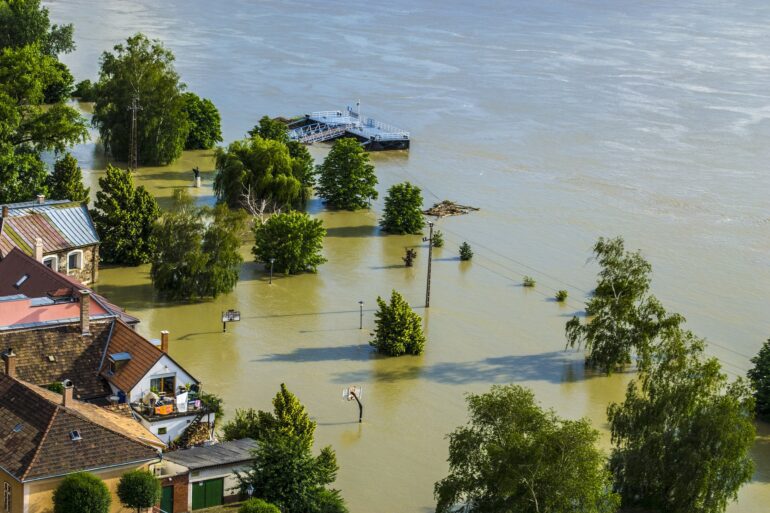TL;DR:
- Google is expanding its Flood Hub platform, which utilizes AI to analyze atmospheric precipitation and issue weather alerts.
- The platform now covers 80 countries worldwide, including 23 African nations.
- Machine learning algorithms enable the platform to provide accurate weather forecasts up to seven days in advance, protecting 460 million people globally.
- Google extends flood alerts through Search and Maps mobile notifications, providing critical information to affected communities.
- The use of AI in flood forecasting reduces risks, safeguards live and property, and facilitates timely responses by aid organizations.
- Flooding costs are projected to increase, with the US estimated to face $43 billion in damages by 2050.
- Asia experiences an annual economic loss of $30 billion, while Europe faces $8.2 billion in flood-related losses.
- Africa has lost $14 billion to floods in the past 30 years.
- Google’s Flood Hub aims to prioritize recovery efforts and provide assistance to regions lacking basic infrastructure.
- By leveraging AI and expanding its platform, Google contributes to minimizing the impact of floods and building resilient communities.
Main AI News:
In an increasingly AI-driven world, Google is taking the lead in utilizing artificial intelligence to mitigate the loss of lives caused by floods. The tech giant recently announced the expansion of its Flood Hub platform, which employs AI to analyze atmospheric precipitation and issue crucial weather alerts. This expansion will now cover a staggering 80 countries worldwide, a substantial increase from the previous coverage of 20 countries. Notably, 23 of these countries are located in Africa, where the need for advanced flood forecasting is particularly pressing.
Through the integration of machine learning algorithms, Google’s Flood Hub platform can provide accurate weather forecasts up to seven days in advance. By doing so, it aims to protect a staggering 460 million people globally. Yossi Matias, Vice President of Engineering, Research, and Crisis Response at Google, expressed his belief in the potential of AI in flood forecasting, stating, “The use of AI in flood forecasting holds great potential for the world by reducing flooding risks for the communities that need it most, safeguarding lives and property, and facilitating timely responses by aid organizations in the case of floods.”
To ensure the widest possible reach, Google has extended its flood alerts through its Search and Maps mobile notifications, effectively providing critical and timely information to affected communities. This gives people valuable time to take necessary precautions. Matias further emphasized the importance of AI in achieving high accuracy, explaining, “Our models improve dramatically as they train on more data, and we are actively working to enable more quality data in order to cover more at-risk regions in more countries.”
The impact of flooding is significant, both economically and in terms of human lives. A study published in the Nature Climate Change journal projected that the cost of flooding in the United States alone would surge from $32 billion in 2022 to $43 billion in 2050. Asia experiences an annual economic loss of $30 billion due to flooding, while Europe faces losses amounting to $8.2 billion. Over the past three decades, Africa has suffered a staggering $14 billion in damages caused by floods.
By leveraging the power of AI and expanding the reach of its Flood Hub platform, Google aims to address these challenges head-on. The company’s focus on flood forecasting and timely alerts will not only help prioritize recovery efforts but also ensure that affected individuals in regions lacking basic infrastructure, such as roads and internet connectivity, receive adequate assistance. Through these initiatives, Google is making a significant contribution toward minimizing the devastating impact of floods and building resilient communities worldwide.
Conlcusion:
Google’s expansion of its Flood Hub platform, powered by AI technology, signifies a significant advancement in the market for flood forecasting and prevention. By extending coverage to 80 countries, including 23 African nations, and leveraging machine learning algorithms for accurate weather forecasts, Google is demonstrating its commitment to mitigating the loss of lives and property caused by floods. The integration of flood alerts through Search and Maps mobile notifications further enhances the platform’s reach and effectiveness.
This development not only presents opportunities for Google to establish itself as a leader in this field but also opens doors for innovative solutions and collaborations within the flood prevention market. With the potential economic impact of flooding projected to increase globally, Google’s proactive approach underscores the importance of AI-driven solutions in building resilient communities and driving progress in the market for flood prevention and disaster response.

